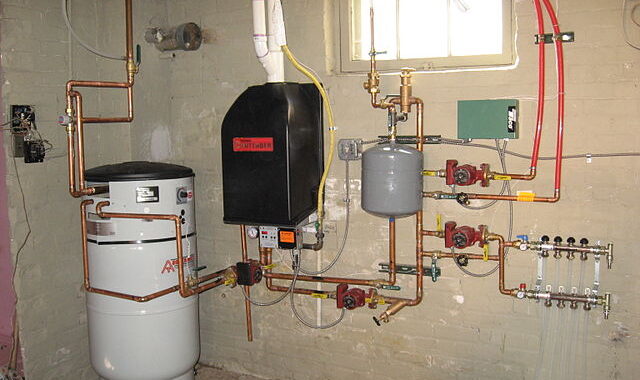Heating Oil Still Relevant in Today’s World?

As we move into an era increasingly defined by sustainability and clean energy, one might wonder whether traditional heating methods such as heating oil are still relevant. Over the years, we’ve seen a growing emphasis on renewable energy sources and the push to reduce our carbon footprint. With so many options available today, such as natural gas, electric heating systems, and renewable energy solutions like solar and geothermal, it’s a legitimate question: Is heating oil still a viable option for homeowners and businesses?
In this blog post, we will take an in-depth look at the relevance of heating oil in today’s world, its pros and cons, and whether it still has a place in modern heating systems.
A Brief History of Heating Oil
Before diving into the current debate, it’s helpful to understand the history of heating oil. Oil-based heating systems have been around for more than a century, initially becoming popular in the early 20th century. They became a staple in homes and businesses due to their convenience, affordability, and the widespread availability of oil.
Oil heat became especially prevalent in the Northeast United States, where winters can be long and harsh. Homeowners relied on oil-powered furnaces and boilers to keep their homes warm during the cold months. Over the years, the oil heating industry grew and evolved, with advances in technology leading to more efficient and cleaner-burning systems. However, over the past few decades, the push toward more sustainable and cleaner energy sources has led many to question the future of heating oil.
The Current Landscape: Is Heating Oil Still Relevant?
The relevance of heating oil today depends on a variety of factors, including environmental concerns, cost, geographic location, and available alternatives. Let’s break it down:
1. Cost Considerations
One of the primary reasons homeowners have continued to rely on heating oil is cost. In the past, heating oil was often more affordable than other forms of heating, such as electric or natural gas systems. However, the cost of heating oil has been volatile in recent years. Oil prices are highly susceptible to global market trends and geopolitical factors, meaning that homeowners who rely on heating oil can experience significant price fluctuations. For some, these price swings are enough to consider other options, particularly during periods of high oil prices.
In comparison, natural gas heating, especially in areas with abundant supply, tends to be more stable and often less expensive than oil. In recent years, many homeowners have made the switch to natural gas or electric heating systems in an effort to control their energy costs. Additionally, advancements in heat pump technology and solar power systems have provided consumers with more affordable and energy-efficient alternatives to heating oil.
2. Environmental Impact
One of the key arguments against heating oil is its environmental impact. Oil is a fossil fuel, and its combustion releases greenhouse gases, contributing to global warming and air pollution. As awareness of climate change has grown, there has been increasing pressure on governments, businesses, and individuals to reduce their carbon footprints. Renewable energy solutions like solar, wind, and geothermal power have become increasingly popular for their ability to generate heat with little to no environmental impact.
Despite this, heating oil has evolved over time. Modern oil heating systems are more efficient and cleaner than older models, incorporating technologies that reduce emissions and improve energy use. For example, high-efficiency oil burners are designed to minimize the amount of fuel burned and reduce harmful emissions. Some systems also use biofuels, which are derived from renewable sources like plant oils, animal fats, and recycled cooking oil. Biofuels can help reduce the carbon footprint of oil heating systems, although they still rely on oil-based infrastructure and fuel.
While cleaner and more efficient than ever before, the reality is that heating oil still has a higher environmental cost than renewable energy sources. This has led many individuals and businesses to consider greener alternatives, even if they require a higher initial investment.
3. Geographic Considerations
The relevance of heating oil can vary greatly depending on where you live. In parts of the United States, particularly in the Northeast, heating oil remains a common method for home heating due to the region’s harsh winters and the historical reliance on oil. According to the U.S. Energy Information Administration (EIA), about 6 million households in the U.S. still rely on heating oil as their primary source of heat, with the majority of these homes located in New England and the Mid-Atlantic.
In other areas, such as the Midwest or Southern United States, heating oil is much less common. Homes in these regions are more likely to use natural gas, propane, or electric heating systems. As such, the decision to use heating oil is heavily influenced by geography. In areas where oil is readily available and there are few other heating options, heating oil can still be a practical and cost-effective choice.

4. Alternative Heating Technologies
The rise of alternative heating technologies has undoubtedly shifted the conversation away from heating oil. Among the most prominent alternatives are heat pumps, which work by transferring heat from the air or ground into a home. Heat pumps are incredibly efficient, especially when paired with renewable energy sources like solar power. They offer a cleaner, more energy-efficient alternative to traditional heating systems, and their popularity has surged in recent years.
Another alternative gaining traction is geothermal heating, which utilizes the earth’s constant temperature to provide heating and cooling. Geothermal systems are highly energy-efficient and environmentally friendly, making them an attractive option for those seeking to reduce their carbon footprint. However, the high upfront cost of installing a geothermal system can be a barrier for some homeowners.
In addition to these alternatives, there has been growing interest in electric heating systems, particularly in regions where electricity is generated from renewable sources. Electric baseboard heaters, radiators, and smart electric heating systems offer a convenient and efficient way to heat a home. These systems also allow homeowners to take advantage of time-of-use pricing, which can make electricity more affordable during off-peak hours.
The Future of Heating Oil
Despite the growing popularity of alternative energy sources, heating oil is not likely to disappear anytime soon. In areas where it remains a primary heating source, oil heating systems are being modernized to improve efficiency and reduce emissions. Additionally, for homeowners who are unable to easily access natural gas or renewable energy options, heating oil may remain a necessary choice.
However, as the world continues to embrace renewable energy and strives to reduce its reliance on fossil fuels, the future of heating oil may become increasingly uncertain. The continued development of clean energy technologies, combined with government incentives and regulatory policies aimed at reducing carbon emissions, may eventually push heating oil to the sidelines.
Conclusion
So, is heating oil still relevant in today’s world? The answer depends on a variety of factors, including geographic location, cost, and environmental priorities. While heating oil may still make sense for certain households and regions, the growing demand for renewable energy and the availability of cleaner, more efficient alternatives suggest that heating oil’s role in the global energy landscape will continue to diminish over time.
For homeowners currently using oil heat, it’s worth considering a transition to more sustainable energy options if feasible. The increasing availability of energy-efficient technologies and government incentives for renewable energy upgrades make it easier than ever to make the switch. Ultimately, the decision comes down to balancing cost, convenience, and environmental impact, but one thing is clear: the world is shifting towards cleaner, greener energy solutions, as highlighted by insights on sustainable living from CCR-Mag.com.


 CBD’s Impact on Digestive Health
CBD’s Impact on Digestive Health  Omega-3 for Vegetarians
Omega-3 for Vegetarians  The Science Behind Shake Ingredients
The Science Behind Shake Ingredients  The Role of Accident Attorneys
The Role of Accident Attorneys  Popularity of Hemp and CBD
Popularity of Hemp and CBD  Budgeting for Millennials
Budgeting for Millennials  Heating Oil Still Relevant in Today’s World?
Heating Oil Still Relevant in Today’s World?